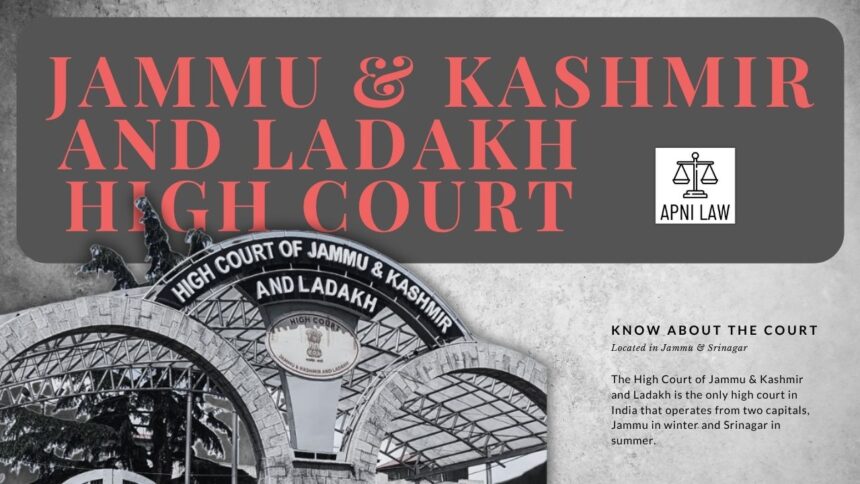Introduction
The High Court of Jammu & Kashmir and Ladakh has emphasised that in claims under the Motor Vehicles Act, 1988 the term “income” cannot be given a narrow or technical meaning if one is to fulfil the statute’s object of just compensation. The Court held that rigid or pedantic interpretation of a deceased person’s earning potential undermines the legislative purpose of providing relief to dependents of accident victims.
Judgment
The decision was handed down in the case titled United India Insurance Co. Ltd. v. Fatima Begum by a Division Bench of the High Court. The bench held that the tribunal must avoid a narrow, over-technical approach while assessing income and future prospects under Section 166 of the Motor Vehicles Act.
Facts of the Case
The claimant-dependents of a deceased person sought compensation for loss of dependency following a road accident. The accident occurred while the deceased was earning a certain amount. At the tribunal stage, the income of the deceased was assessed rather conservatively, with little allowance for future growth or ancillary earnings. On appeal, the insurance company contended that the deceased’s income and earning potential had been overstated. The High Court, in its review, considered whether the tribunal’s approach to income was too mechanical and failed to reflect the broader earning capacity of the deceased.
What the Court Says
The High Court stated that the Motor Vehicles Act is a “beneficial legislation” designed to deliver timely and adequate relief to victims and their dependents. It held that applying a narrow or overly technical definition of “income” would run counter to the statute’s purpose. The Court further observed that “income” should encompass more than just the last drawn salary or fixed employment income, it may include allowances, bonuses, other sources of earnings, potential prospects and increase in value of skills.
In particular, the bench warned against the practice of excluding components simply because they lack fixed periodicity or because formal proof is not perfect. It impressed upon tribunals to adopt a pragmatic approach in estimating future prospects, especially for younger working-age deceased persons. The Court cautioned that rigidly adhering to only documented salary data and ignoring real-world prospects of growth would lead to inadequate compensation.
Implications
This ruling has significant practical consequences in motor-accident litigation. Firstly, claimants should ensure that tribunals are made aware of all sources of income of the deceased, including allowances, overtime, bonuses, part-time jobs, future growth potential and other incidental earnings. Secondly, insurance companies and defence counsel should recognise that the High Court expects a generous and purposive interpretation of income when the deceased had capacity and dependents. Thirdly, courts and tribunals may no longer rely purely on last drawn salary as a ceiling; a broader assessment of the earning trajectory of the deceased is warranted, especially for younger victims. Finally, this decision reinforces that the objective of the Act is to indemnify dependents for the real economic loss caused by the death or disability of the bread-winner, not to confine relief to a minimalist calculation.
Conclusion
The Jammu & Kashmir and Ladakh High Court’s decision underscores that compensation under the Motor Vehicles Act must reflect the full loss to dependents, not just the narrow earnings of the deceased at the date of the accident. By rejecting a pedantic approach to “income”, the Court reaffirmed that the legislation must operate to provide fair relief in real-world terms. Parties involved in motor-accident claims must therefore align their evidence and arguments with the purposive and generous interpretation endorsed by the Court.








